Description
—Matthew Walker, PhD, bestselling author of Why We Sleep
A MindBodyGreen Health & Well-Being Book for Your 2021 Reading List
Anyone having trouble sleeping has heard all the old “sleep hygiene” rules: Don’t drink caffeine after 2:00 p.m., use the bedroom only for sleeping, put down your screens an hour before going to bed. But as the millions suffering from poor sleep can attest, just following these overly simplistic, one-size-fits-all directives doesn’t work. How to Sleep is here to rewrite the rules and help you get to sleep—and stay asleep—each and every night.
Dr. Rafael Pelayo, an expert sleep clinician and professor at the world-renowned Sleep Medicine Clinic at Stanford University, offers a medically comprehensive and holistic approach to the myriad issues that might be affecting your sleep. He begins by grounding us in the biology of sleep including the extremely reassuring fact that no one actually sleeps through the night—we naturally wake up every ninety minutes. Dr. Pelayo then tackles the major sleep issues one by one, such as snoring and its causes; the difference between transient and chronic insomnia, and how to treat each; strategies to combat jet lag; how lifestyle choices affect your sleep, including exercise (even ten minutes helps), meditation (try it right before bed), and food and drink (alcohol is a double-edged sword—it may help you fall asleep faster, but it often interferes with staying asleep).
There’s advice for the bedroom—on white noise machines, ambient temperature, what to look for in a pillow—and answers to our most pressing questions, from when to see a sleep medicine specialist to how aging affects our sleep. All in all, it’s a sure prescription to help you sleep better, wake up refreshed, and live a healthier life.
Read more
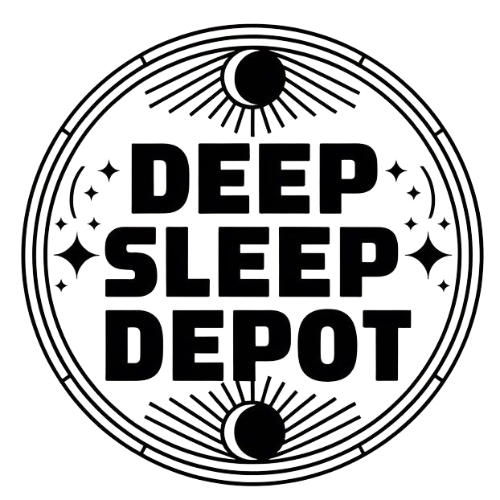
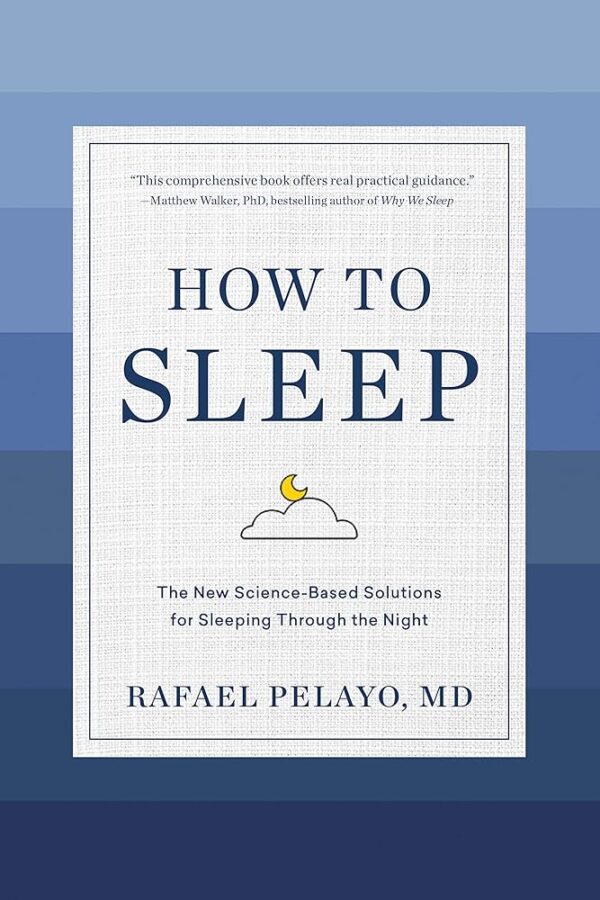
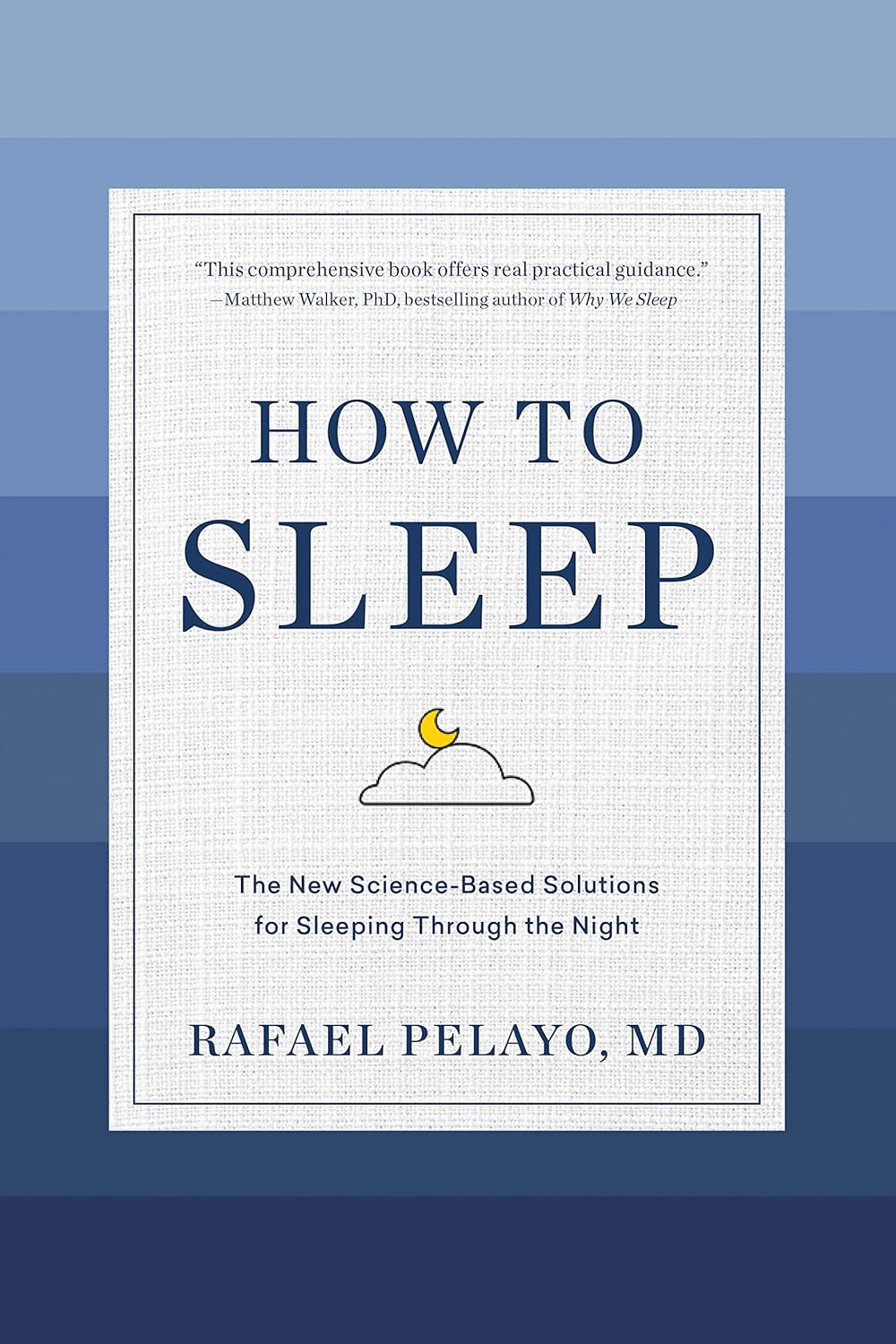
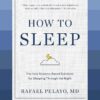

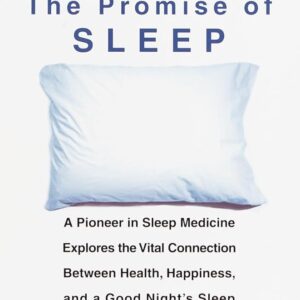
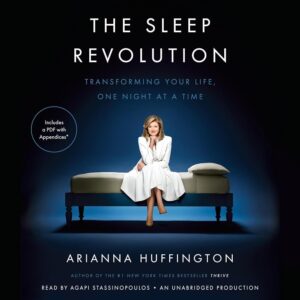
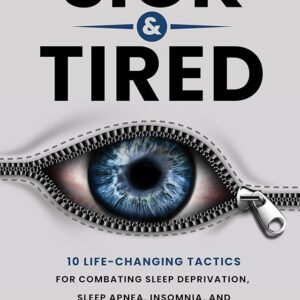
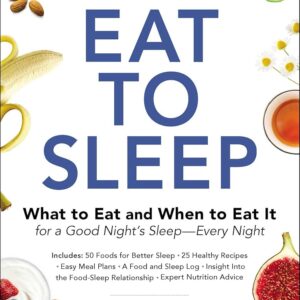
Suzanne –
How to Sleep is a short read that discusses the things you can do to get a good night’s sleep. It is a great overview of the issues people face with not sleeping well, and would work well as an introduction to the topic. However, it could use more detail about each condition, more examples of what has worked for other people, and sleep surveys and questionnaires readers could take to determine whether they have an issue or not. The book is written in easy-to-understand language, making it accessible for all people. However, I was left wanting more after reading it.
Meredith Broderick –
How To Sleep goes over all the symptoms of sleep deprivation that are often mistaken for other things, or worse, accepted as normal. This book reveals what to observe and how to pursue optimal health through optimal sleep. For me, suffering from sleep deprivation for 40 years, this book made me realize that my chronic struggles are not imagined and are not necessary. There are solutions. I am pursuing my complete solution to my sleep problems, and this book has been a key step in the journey. I especially recommend all parents to read this, as you can change your child’s life by averting sleep deprivation just by knowing what to look for and where to find solutions. Thank you Dr. Pelayo for writing this book for all of us, a book that distills the best science of today and is actionable!
Bahar Wadia –
I received an ARC of this book to read through Edelweiss+. All opinions are my own. How to Sleep: The New Science-Based Solutions for Sleeping through the Night by Rafael Pelayo MD is a guide to improving your sleep habits written by a sleep clinician at the Sleep Medicine Clinic at Stanford University. As someone who suffers from chronic insomnia I’ve read a number of books on sleep and while this one doesn’t offer any miraculous cures, it is a concise, well-written resource for people looking to improve both the quality and quantity of their sleep and I would say one of the better books available on the topic as he presents the information you need without getting bogged down in academia science-speak. Publishing Date: December 8, 2020. #HowToSleep #RafaelPelayo #ArtisanBooks #SleepBooks #NonFictionBooks #bookstagram #bookstagrammer
Ethan –
Given that the author is considered the top or one of the top specialists in the science of sleep, I was really hoping for some new information. Nothing! Nothing that I haven’t been reading about for years. Don’t waste your money. What a disappointment.
Bahar Wadia –
The third sentence in the Introduction of this book gives you all the reasons you should read this book. As a technology professional and a father of 14 and 11-year-old boys, I know the havoc sleep deprivation plays on my family and mental well-being.
Much has been written about the importance of sleep. Dr. Rafael Pelayo’s book, How To Sleep, is the first of its kind written in simple English to help get better sleep. It is not intended to replace professional medical advice. Still, it goes along way to help debug common sense problems related to poor sleep.
Dr. Rafael Pelayo covers a broad range of problems related to poor sleep in this book and simple advice to solve them; some were of immediate concern for me and others that I know I will have to deal with later in my life. IT IS FOR THIS REASON, HOW TO SLEEP, WILL STAY IN MY PERMANENT LIBRARY. I recommend the same to anyone.
nmgski –
As a trainee of Dr. Pelayo, I have been repeating his teaching for years. He has a unique and relatable way of explaining concepts and making them understandable. For years I have yearned for a great book to refer my patients to for a comprehensive but accessible book on sleep. This is the book. As a board certified sleep doctor, as a I read the book I kept thinking, yes, yes yes! The world is now filled with information on sleep, not all of it accurate or helpful. This the book you need – accurate, concise, accessible. Worth every cent.
Mary Beth Adams –
In a crowded field of books on sleep and its disorders, “How to Sleep” is unique for the calm, assured, and charmingly aphoristic tone which Dr. Pelayo maintains throughout. Borne from years of true, lived clinical experience as a sleep medicine doctor, Dr. Pelayo speaks with a gentle authority when he reassures the insomniac, the sleepless parent of a young child, the person with disruptive sleep apnea, etc, that “…sleep will come. It always does”. Perhaps the book’s core message is that we can approach our sleep-related ailments with confidence: these issues, as complex or intractable as they may seem to the sufferer, are imminently solvable. But, despite its title, “How to Sleep” is more than a mere prescriptive for the sleepless. Like Dr. Dement’s “Some Must Watch While Some Must Sleep” before it, this book is a wide-eyed tour of the ceaselessly fascinating field of sleep science. This is a book to keep on your bedside table.
A. Fuchs –
This book is a LIFESAVER! I got this book as a present because I have difficulty sleeping. I figured it would be helpful, but I didn’t think it would be as interesting as it turned out to be. It was easy to read and I found the tips truly helpful. I wish I read it a long time ago!